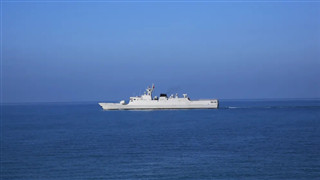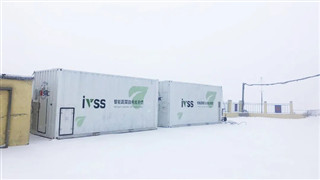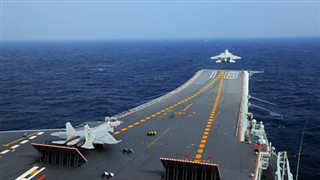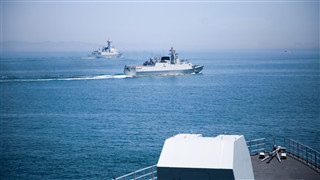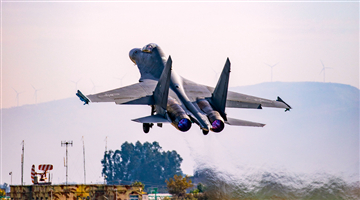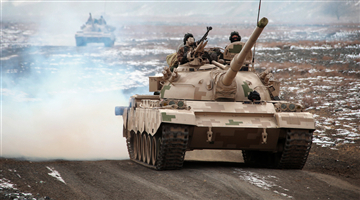By Wang Peng
British Prime Minister Boris Johnson recently told the House of Commons by video link that the government would spend an additional GBP16.5 billion on defence over the next four years, averaging an increase of £4 billion per year. According to the government plan, the money will be used for the creation of a new agency dedicated to artificial intelligence, a new “National Cyber Force” and a new Space Command. This is Britain’s most important arms force investment plan in the past 30 years since the end of the Cold War, and also the largest military spending program, marking a significant adjustment of its defence policy.
The British government announced such a massive defence investment plan in the teeth of the COVID-19 pandemic out of calculations. Internally, the extra defence spending could create nearly 10,000 extra jobs per year, which could help the country recover the economy by boosting the military industry.
Meanwhile, London wanted to lift the British military out of its persistent financial strait. Britishnewspaper The Sunreported that British naval vessels have decreased from more than 80 to 50, with 10 vessels being out of repair, 6 type-45 destroyers having frequent malfunctions, and the only 13 frigates aging quickly. The British Ministry of Defence also planned to have the British Army's 227 Challenger II main battle tanks and 388 Warrior armoured fighting vehicles currently serving in the army eliminated from its force structure because they are outdated and their maintenance and upgrade cost is rising sharply, money that should be saved amid the military budget contraction for other cutting-edge technologies including cyber and space technologies, special operations, and underwater nuclear forces. Therefore, the British military is indeed in need of fiscal replenishment.
Externally, the British government hoped to revive its waning international influence by enhancing its defence capability. Reuters commented that the Johnson administration had a mind to resume a leading role in global cooperation and free trade of the new era after “Brexit” leveraged on the cutting-edge modern military and network capabilities.
The latest move on the UK’s part was also generally considered an overture to the US. Public opinions in the US held that London, by increasing its defence budget, hopes to gain Washington’s trust and continue to be a valuable military ally.
Generally speaking, the British government’s defence expense spike to enhance its military capability has a specific strategic purpose. On October 19, the British MoD released the Science and Technology Strategy 2020. The document noted that the MoD should follow the guiding principle that “by lifting our eyes to the long term we can actively shape the future and move ahead of our adversaries,” and endeavor to lay the foundations for the generation after next of military capability. The document holds the prejudiced view that “Extremist organisations remain a concern, but the threat picture now also includes two great powers with substantially greater capabilities – a resurgent Russia and a rising, increasingly powerful China.”
In response, Prime Minister Johnson vowed to make the most ambitious deployment in 20 years in 2021, the deployment of aircraft carrier HMS Queen Elizabeth to the Indian Ocean and East Asia and other areas to jointly carry out military missions with UK allies. As the Nihon KeizaiShimbun pointed out, it’s sending the signal that the UK will effectively counter China’s military clout in the Indian Ocean.
London believes it needs to build a modern, comprehensive and tough armed force if it plays a bigger role in the future international stage. In particular, Britain’s 30-year Naval Ship Acquisition Master Plan proposed to build a future fleet centered on the Queen Elizabeth-class aircraft carrier, which will be a vital foundation and tangible asset to demonstrate the country’s military deterrence.
Yet despite the UK’s ambitions, it won’t be easy to reach the expected goal. What it is planning requires a considerable amount of money. Regarding the assignment of the aircraft carrier to the Indo-Pacific region, the British House of Commons said the government had underestimated the cost of making such a move and pointed out a shortfall of at least billions of US dollars on the carrier battle group alone. More importantly, the UK’s meddling in the Asia Pacific doesn’t conform to the international community’s security interests. Under the current circumstances, what the countries and regions need is cooperation rather than confrontation or conflict.
